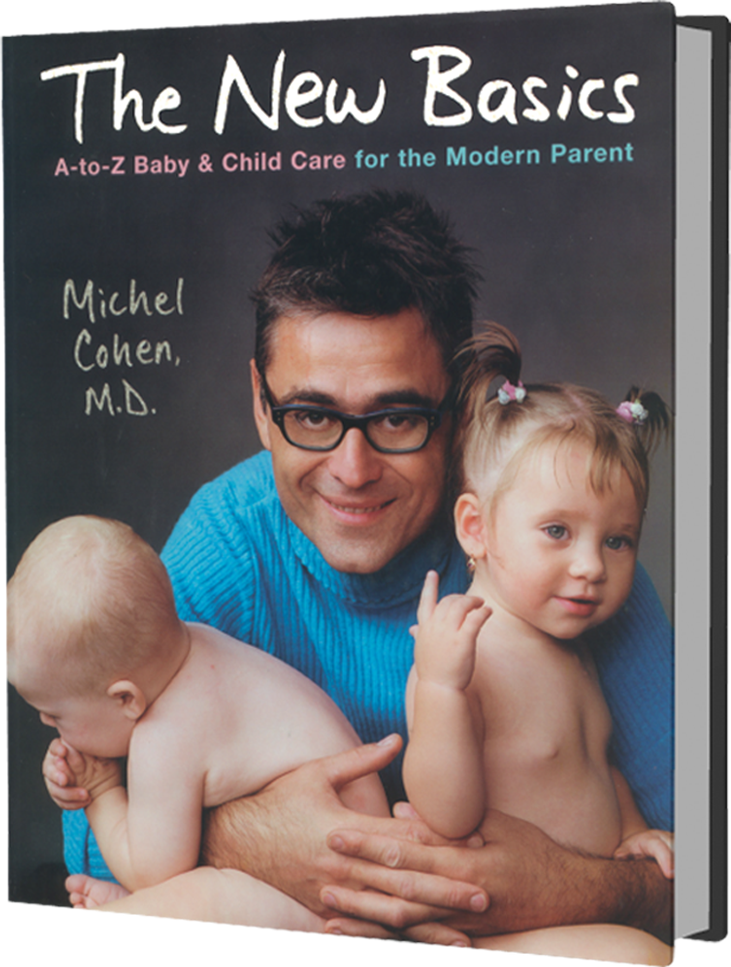
Siblings
After your third month of pregnancy, you decide to break the news to Jimmy. At first, he doesn’t seem to care, although it amuses him when you or your husband point to your belly and say “baby.” He is quite intrigued with the books you read him that portray big people with big bellies, people his size looking very happy, and even strange hairless new people who are smaller than he is. Several months later, you and your husband suddenly disappear for a few days, and Jimmy stays with grandma, a real treat for him, since he gets plenty of cookies. When you reappear, you have two new things: a noisy little creature who seems permanently affixed to your breast and a new train set for Jimmy. He looks at the train set for a while and then wanders over to the new creature. Within a few days, he notices that the new creature gets lots of attention when it screams, and he wonders if that would work for him too.
Bringing your new baby home is a joyful moment, at least until your older child starts pulling the baby’s arm and twisting yours. Kids of any age feel slightly unsettled after the birth of a new sibling. This is due less to jealousy than to a change in routine. Anticipating their reactions will help the whole family deal with the transition more peacefully and smoothly.
At first, Jimmy doesn’t mind and even enjoys having the new baby around. But fairly soon, the change in his routine upsets him. At times he’s more excited than usual, or he has a harder time controlling his emotions. This also affects how he treats Lucy, and he oscillates between indifference, kindness, and an extreme kindness that is difficult to differentiate from aggression. In other words, while he notices how pleased you are when he pets her, he also notices the reaction he gets from you when he whacks her.
On average, second children arrive about two years after the first. Coincidentally, this is when the older child is in a rambunctious stage and needs his parents to set firm boundaries. Because of your fatigue, guilt, and distraction, Jimmy takes advantage of this new opportunity to push your buttons and drive you crazy. This is the perfect setup for future behavior problems and sibling rivalry if you lose sight of the fact that your main responsibility toward your older child is to deliver a mixture of love and discipline. As hard as it may be, you need to be even more stern and consistent as a parent during this phase.
Be very matter-of-fact about the birth of the new baby. Convey the message that the new arrival benefits everyone, including Jimmy.
Try to provide a routine that’s like your old one. Consistency will smooth over many of the problems.
Let him touch Lucy, even if he’s a little rough. Sometimes it’s not clear if he’s petting her or hitting her. But Lucy is tougher than she looks. And when he gets too rough, don’t make a big deal, just separate the two of them without showing too much displeasure.
Spend extra time with Jimmy but not in response to misbehavior.
Provide some one-on-one activity without isolating him from the baby.
As soon as you can, put the two kids together to share the same room, even if you have enough space to keep them separate. Cohabitation fosters bonding; the older one gets the sense of protecting the new baby, and the younger one gets a kick out of watching what the older one gets up to. And this way you won’t have to divide your time between the two rooms and create jealousy and competitiveness.
Implement discipline if necessary. Don’t hesitate to call a time-out; a little bit of crying will help Jimmy lower his frustration.
Don’t overprepare Jimmy for the birth. Before age two and a half, he’s too young to understand, and even if he does grasp the situation intellectually, that won’t help him prepare emotionally.
Don’t feel sorry for Jimmy; there is really nothing to be sorry about.
Don’t force the baby on him or ask him incessantly if he loves his little sister. Let him develop his own bond.
Avoid coming home from the hospital with a bunch of new toys. It may be sweet, but it could betray your own anxiety, and it puts unnecessary emphasis on his acceptance.
Don’t give Jimmy attention in response to misbehavior. Instead, give him attention when he expects it least.
Having a sibling is a blessing for the whole family. For Jimmy it’s built-in entertainment and an additional source of affection. It also helps him grow up: As you devote less attention to him, you hover less and encourage his burgeoning independence.
There is no good time or bad time. Many child-rearing experts talk about the importance of spacing siblings. This isn’t particularly valid. Kids whose siblings follow close behind are just as happy as those with “space.”
It’s been a few months, and my older child is still hitting the baby once in a while. What should I do?
If Jimmy is still hitting Lucy, it’s probably because you gave these episodes too much attention initially. I know it’s hard not to overreact to an assault on your new baby, but the more upset you get, the more you’ll feed this behavior. Treat this simply as an inappropriate behavior, just like throwing food or knocking over a vase. Give him a simple warning, and if he still disobeys, put him in his room for a few minutes. Then bring him back with no additional comment. By downplaying these events you’ll diminish their frequency [See: Discipline and Boundaries].
Should I nurse the new baby in front of the older one?
Absolutely. Let Jimmy discover the facts of life, one of which is that a young baby needs to eat.




 MEDICATION DOSAGE
MEDICATION DOSAGE

